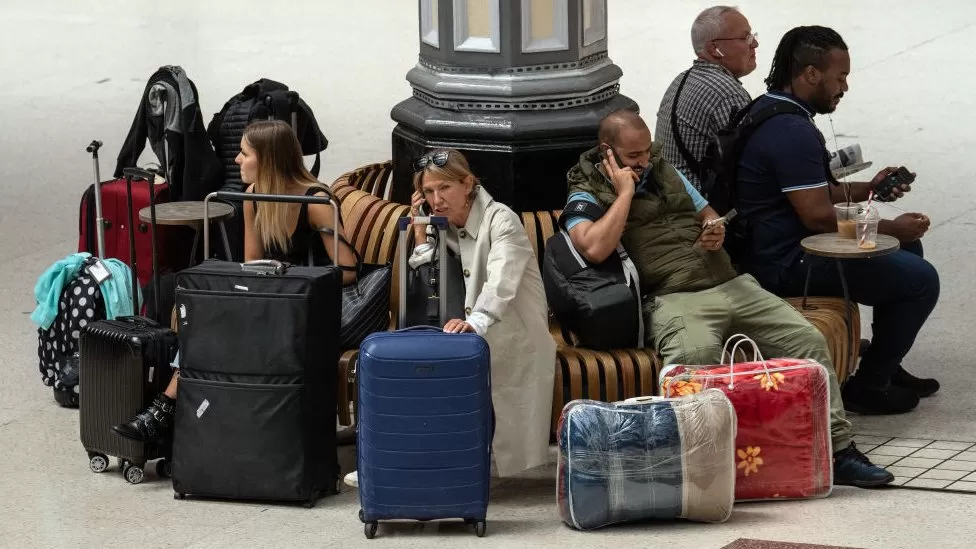
There is major disruption to rail services on strike days.
When are the next strikes?
On 8 October, the RMT union, which represents rail workers including guards and signalling staff, holds another strike.
It involves staff at Network Rail, which covers England, Scotland and Wales – so there will be a widespread impact on services, with no trains at all in some areas.
The TSSA union is also going on strike at Avanti and c2c on 8 October.
Disruption is also expected on the days after strike days, with services starting later than normal.
Why are railway workers going on strike?
The unions are in dispute with the government and rail companies about pay, job cuts and changes to terms and conditions.
Talks are still taking place – RMT leader Mick Lynch recently said talks with the new Transport Secretary Anne-Marie Trevelyan were a “good start”, but that “concrete change” was needed.
On pay, the unions say salaries should increase to reflect the rising cost of living.
One of the employers involved in the dispute, Network Rail, says the offer it made in July is worth 8% over two years but depends on workers accepting its “modernisation plans”. However, the RMT – which represents rail workers – says this is a “paltry sum” and represents a real terms pay cut.
The RMT says another issue is plans by Network Rail to cut 2,500 maintenance jobs, as it tries to save £2bn over the next two years. The union insists those jobs are “safety critical”.
Network Rail says there would be no more than 2,000 job losses – and that all redundancies can be voluntary. It says it would not consider any changes that would make the railways less safe.
The TSSA is also demanding a guarantee of no compulsory redundancies and no changes to terms and conditions which it hasn’t agreed to.
The Aslef union says some members haven’t had a pay rise since 2019.
The government says the railway system needs modernisation and has to be financially sustainable for the long term. It says £16bn of taxpayers’ money was used to support the railways during the Covid pandemic.
However, with passenger numbers still down by one-fifth, it says changes are needed.
How much are rail workers paid?
The Office for National Statistics has estimated the average salary of rail workers as £43,747, based on five different job categories. If drivers are excluded, its estimate is £36,800.
Can I get a refund if there’s a strike?
If your train is cancelled, delayed or rescheduled, National Rail says you are entitled to a refund from the retailer where you bought the ticket.
Season ticket holders who choose not to travel on strike days can claim compensation for those days.






